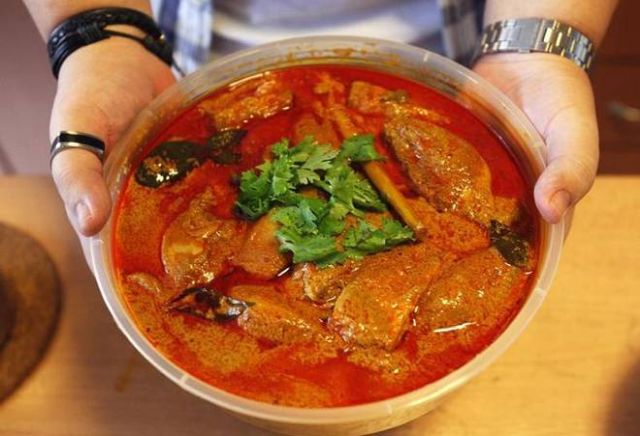Live Makkah
Live Madinah
Urdu Font Download
Latest News:
Padubidri: Fishing boat capsizes; all 7 fishermen on board rescued Alleged atrocity on lawyer: Punjalakatte SI suspended Moral policing at jewellery shop: 4 arrested Bajrang Dal activists try to assault youth, girlfriend in Mangaluru SC to hear Bilkis Bano’s plea against release of 11 convicts on 13 Dec Nusrat Noor: First Muslim Woman to Top Jharkhand Public Service Commission
Latest News:
Padubidri: Fishing boat capsizes; all 7 fishermen on board rescued Alleged atrocity on lawyer: Punjalakatte SI suspended Moral policing at jewellery shop: 4 arrested Bajrang Dal activists try to assault youth, girlfriend in Mangaluru SC to hear Bilkis Bano’s plea against release of 11 convicts on 13 Dec Nusrat Noor: First Muslim Woman to Top Jharkhand Public Service Commission
Most Indians are non-vegetarian, Southern and Northeastern states top the list: Report

New Delhi, 24 May 2018 [Fik/News Sources]: Considering the current climate in the country, one would easily be misled to believe that India is dominated by vegetarians. However, that is not the case. Only a portion of the country – the Northern states – make up for most of the vegetarians in the country, while the Southern and Northeastern states are predominantly non-vegetarian, with people consuming different types of meat, fish, and eggs.
An analysis of the national health data by IndiaSpend and FactChecker revealed that 80% of Indian men and 70% of Indian women have non-vegetarian food. However, these figures do not imply that they have non-vegetarian every day. The daily diet still consists of vegetables, milk, and pulses or beans.
The report states that overall 48.9% men and 42.8% women consume non-vegetarian items weekly.
The IndiaSpend-FactChecker report also highlights that the highest amount of non-vegetarian among women in terms of weekly consumption are in Kerala (92.8%), Goa (85.7%) and Assam (80.4%), while among men it is in Tripura (94.8%), Kerala (90.1%) and Goa (88%).
The lowest figures in men who are non-vegetarian were registered in Punjab (10%), Rajasthan (10.2%) and Haryana (13%), while it is Punjab (4%), Rajasthan (6%) and Haryana (7.8%) yet again for women. It is evident from the numbers that meat consumption in South and Northeast India is highest in the country, while it is lowest in North India.
As is evinced from the figures, more men eat non-vegetarian food in India than women. Almost 3 in every 10 women that is 29.3% do not consume eggs, while 29.9% do not consume meat or fish. However, out of every 10 men 2 do not consume eggs that is 19.6%, while 21.6% do not consume meat or fish.
Factors such as education, caste, wealth also determine a person’s food preference. The report showed that in men the highest consumption was among unmarried individuals – 50.5% for eggs and 49.2% for meat and fish. Urban men consumed more non-vegetarian food than rural men. As for women, individuals who were widowed, divorced or deserted consumed more non-vegetarian food.
Individuals who have had upto five years of education eat more eggs 54.2% for men and 48.2% for women. The same is true for fish and meat with 57.6% men and 51.8% women with the same education level preferring them.
When it comes to religion, Christians consume eggs and meat the most, with men accounting for 71.5% and 75.6% respectively and women accounting for 59.7% and 67.3% respectively. They are followed by Muslim men with 66.5% and 73.1% and Muslim women with 59.7% and 67.3% respectively.
If caste is to be considered, individuals who said they were not aware of their caste consumed the most non-vegetarian food. Consumption of non-vegetarian food also increases with household wealth. However, a lower percentage of individuals among the richest 20% Indians follow the trend.
Prayer Timings
| Fajr | فجر | |
| Dhuhr | الظهر | |
| Asr | أسر | |
| Maghrib | مغرب | |
| Isha | عشا |







